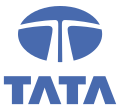This article has multiple issues. Please help improve it or discuss these issues on the talk page . (Learn how and when to remove these messages)
|
 | |
| Company type | Privately held company |
|---|---|
| Industry | ed-tech |
| Founded | 1990 |
| Founder | Sanjaya Sharma |
| Fate | Acquired by MPS Limited |
| Headquarters | |
Area served | Worldwide |
| Services | E-learning services and solutions |
Number of employees | 300 |
| Parent | MPS Limited |
| Website | www |
Tata Interactive Systems (TIS) was an Indian developer of custom e-learning based in Mumbai, India. It was founded by Sanjaya Sharma in 1990. [1] The company was acquired by MPS Limited (a publishing and content platform developer) in June 2018. [2] The company was represented across the United States, Canada, Australia, New Zealand, Brazil, the Middle East, India, the United Kingdom, The Netherlands and Switzerland. [3] TIS' offered corporations, universities, schools, publishers and government institutions training including simulations, story based learning, courseware and curriculum design & development, special-needs education, assessment tools, electronic performance support systems (EPSS), mobile learning, game-based learning, consulting services and training outsourcing services. Until the acquisition, TIS was a part of the $100 billion Tata Group. [4]
TIS was the only e-learning organization in the world to be assessed at Level 5 in both the SEI-CMM (Carnegie Mellon University Software Engineering Institute’s Capability Maturity Model) and P-CMM (People-Capability Maturity Model) frameworks. [5]
